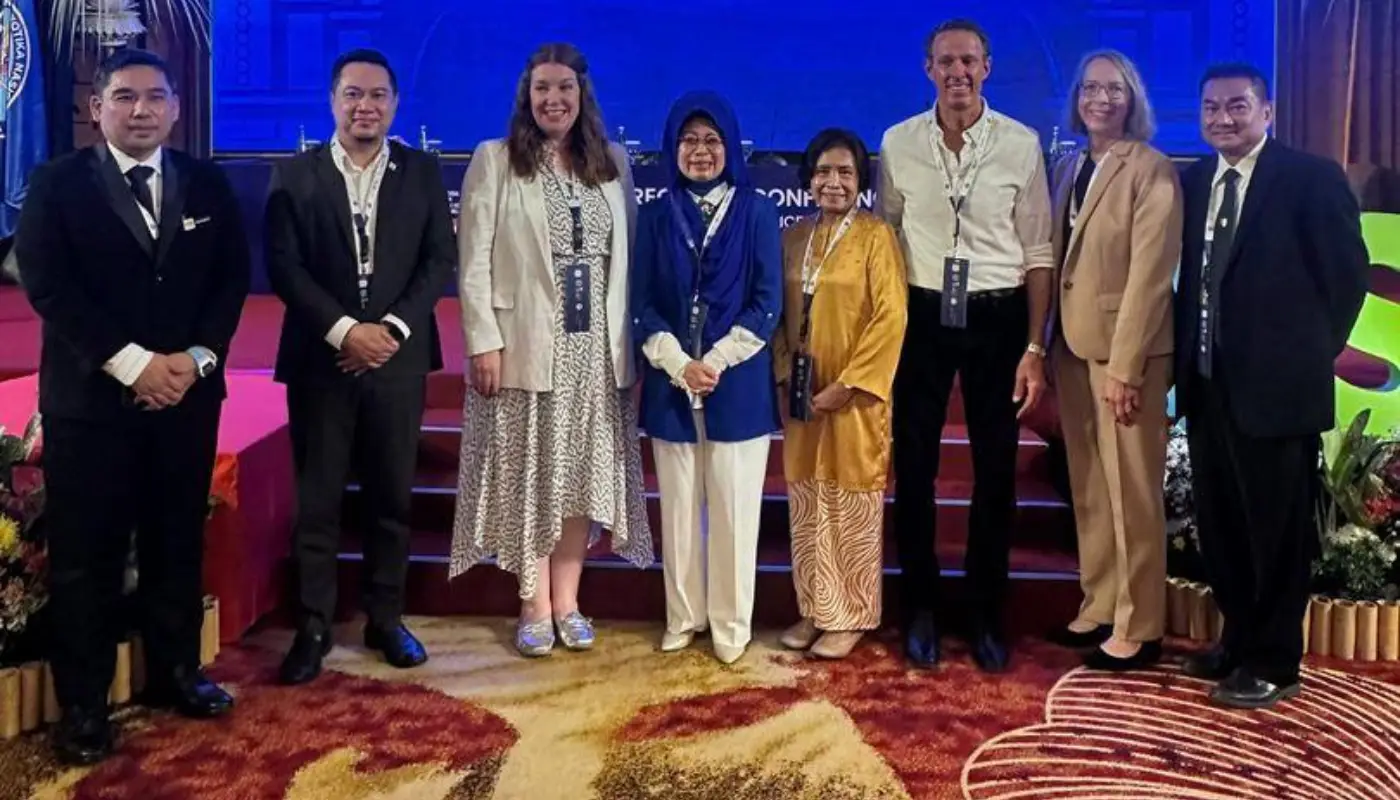BALI – Sarawak’s innovative, community-driven framework for addressing substance use disorders (SUD) was highlighted as a pioneering model during a plenary address at the International Society of Substance Use Professionals (ISSUP) Regional Conference 2025.
The state’s Minister of Women, Early Childhood and Community Wellbeing Development, Dato Sri Fatimah Abdullah, detailed the success of integrated strategies that combine multi-agency cooperation, grassroots engagement, and socio-economic empowerment initiatives.
Speaking under the conference theme “Pioneering Addiction Science for Global Impact: Innovate, Integrate and Sustain,” Dato Sri Fatimah emphasized that enforcement-alone approaches are insufficient to curb SUD.
She advocated for comprehensive methods that merge healthcare, social support, and long-term recovery mechanisms, noting that Sarawak’s One Stop Committee (OSC) model operational since 2018—has significantly reduced recidivism and increased voluntary help-seeking behaviours.
Key components of Sarawak’s strategy include the Community Development and Intervention Centres (CDICs), the Integrated Social Issue Case Management System (ISICMS), and the Low Income Family Empowerment (LIFE) programme.
These initiatives work in tandem to provide holistic support covering prevention, treatment, rehabilitation, and socio-economic reintegration.
The minister pointed to collaborative efforts with enforcement and non-enforcement agencies, non-governmental organizations, and civil society groups at state, divisional, district, and grassroots levels as critical to this success.
Dato Sri Fatimah also referenced data from the Sarawak Social Development Council and Universiti Putra Malaysia, which captured insights from lived experiences of affected individuals and stakeholders since 2016.
These findings informed the state’s approach, leading to a recidivism rate of just 98 per 100,000 residents, the lowest in Malaysia and among the lowest globally.
The state’s admission rate for recidivism was 3.54% between January and August 2022, further underscoring the model’s effectiveness.
The minister called for strengthened regional and international collaboration, urging other nations to adopt sustainable, inclusive, and community-based strategies to build resilient societies and promote a drug-free future.



